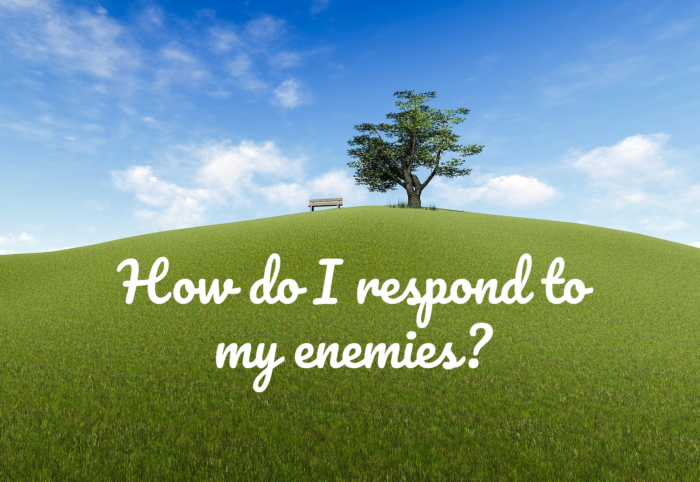The Other Side of the Equation
On Monday I wrote about the “Tactless Art of Making People Feel Small”. In that post I shared how important it is that we treat others as we want to be treated instead of acting like we are better than they are. It was an important post because it’s an easy (and acceptable) sin to commit. I hope you will take the time to read it if you haven’t done so yet.
Ironically…
On Tuesday (the day after that post was written), I was planting flowers for a few of our customers. I actually don’t do a whole lot of on-the-job work for our landscaping company but planning and planting the flowers in the busy month of May is something my husband has asked me to do.
Our second job of the day took us to the house of a customer who has mastered the art of making others feel small. We just know that this is the case with him and I tried to prepare myself for his condescension and abrasive attitude. While we were there he came out of the house and got into this car that was parked in the driveway. I glanced over with a smile and a ready wave, but he completely and absolutely ignored my daughter and me planting flowers in his front yard as he drove away in his {very expensive} car. And, yes, I’m pretty sure he knew we were there. That’s just the kind of guy he is. This is not the first time this kind of thing has happened and I am sure it won’t be the last. Unfortunately.
But my reason for writing is not this customer’s treatment of me. Rather, it is about my very wrong reaction to his treatment of me.
I was actually rather surprised at the intensity of the feelings that stirred up in my heart against him. Who does he think he is? The smallness I felt was almost tangible and my first reaction was indignation and animosity towards him.
The Holy Spirit almost immediately convicted me as I realized that this man doesn’t know the Lord. He is lost in his sins and my sinful anger won’t help Him to know my Savior but, in fact –should he ever find out my bad attitude towards him–would serve to drive him away from Christ. This really had me thinking as I sat there digging holes in the dirt and planting pink supertunias.
You see, there is another side to this equation of making someone feel small and that is: How we respond when someone makes us feel small. Because I think we have all been there. Whether it’s a customer who thinks they are better than us, an arrogant co-worker or boss who is constantly demanding things from us, a friend who directs unkind, sarcastic remarks at us, or any other countless situations that remind us that there are those who think we just aren’t important, all of us have been there at one time or another.
And how do we respond? Actually, don’t answer that. If you are like me, you won’t be very proud of the answer.
So let’s, instead, go to the Bible and see how we should respond–
First, Jesus tells us to love our enemies in Matthew 5:44: But I say to you, love your enemies, bless those who curse you, do good to those who hate you, and pray for those who spitefully use you and persecute you.
While this is talking specifically about those who hate us, I think we can safely say that if we are to love those who hate us, we should do the same for those who would make us feel small. It is easy to build a lot of resentment and bitterness towards someone who does this because it feels so very personal. But, instead, we must forgive and then forgive again. We must let the remarks roll off our backs without building up a mountain of anger inside that festers.
In fact, Jesus tells us in Matthew 18:21-22 that we are to continue to forgive someone, even if they continue to hurt us: Then Peter came to Him and said, “Lord, how often shall my brother sin against me, and I forgive him? Up to seven times?” 22 Jesus said to him, “I do not say to you, up to seven times, but up to seventy times seven.
This can be hard to do with someone who is making us feel so incredibly unimportant and small.
(And if I may go down a quick bunny trail–I had to wonder why I was so angry about this as I stood in the front yard with my frozen smile on my face as I watched him drive away. And I realized it is that ugly old sin of pride cropping up yet again!! It revealed my own ugly self-importance that will probably plague me my whole life. And it makes me glad, once again, for a wonderful Savior who covers my sin and makes me right before God.)
And, second, I think it’s important we take it a step further as we respond to people like this by remembering that something is going on. While many of us struggle with making people feel small on occasion, there are those who do this to us all the time, which makes it harder to forgive. And yet, we have to understand that if someone is living in a pattern of this type of behavior, we can know that they are either lost and headed to hell in their arrogance and pride or they are saved but struggle with a deep-seated problem of insecurity and the only way to make themselves feel better is to make others feel small. Either way, they should be the recipients of our forgiving loving-kindness that would echo the same forgiveness and loving-kindness that God showed us– But God demonstrates His own love toward us, in that while we were still sinners, Christ died for us.(Romans 5:8).
If we need to wait for someone to treat us kindly before we treat them kindly, we are doing it all wrong. God can fill us with His love for someone like this, if we only just ask Him.
And, finally, we have to remember to put ourselves on the back seat and consider our ultimate objective–to save those who are lost and to draw believers to the Word of God and to walk closer with Him. What reaction will best further this goal? Instead of worrying about our foolish pride, we must toss it aside as the rubbish it is and turn our eyes towards eternal matters. What does it matter if someone thought they were better than us if they end up in hell?? It is sobering to think how often we let self keep us from our ultimate objective.
Anyway, these are all the things I have been thinking about since that incident on Tuesday. I am sure that some of you do not struggle in the same way with that ugly root of pride, but for those of you that do, I hope that this post has encouraged you. God’s Word has the answers, it is just a matter of obeying it. Therein lies the real challenge.










